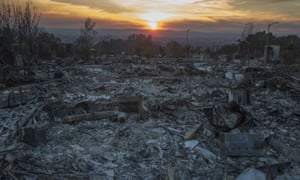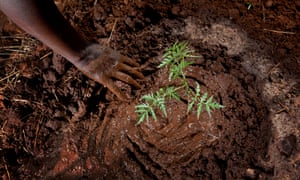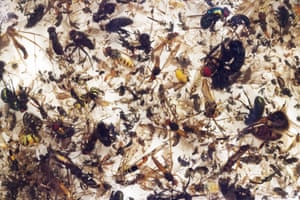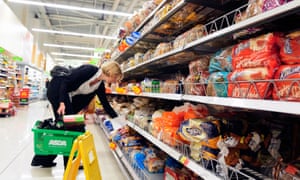“Carbon Pollution Touched 800,000 Year Record in 2016, WMO Says”

Carbon dioxide levels surged to their highest level in at least 800,000 years because of pollution caused by humans and a strong El Nino event, according to the World Meteorological Organization.
“Is the Modern Mass Extinction Overrated?”

After decades of researching the impact that humans are having on animal and plant species around the world, Chris Thomas has a simple message: Cheer up. Yes, we’ve wiped out woolly mammoths and ground sloths, and are finishing off black rhinos and Siberian tigers, but the doom is not all gloom. Myriad species, thanks in large part to humans who inadvertently transport them around the world, have blossomed in new regions, mated with like species and formed new hybrids that have themselves gone forth and prospered. We’re talking mammals, birds, trees, insects, microbes—all your flora and fauna. “Virtually all countries and islands in the world have experienced substantial increases in the numbers of species that can be found in and on them,” writes Thomas in his new book, Inheritors of the Earth: How Nature Is Thriving in an Age of Extinction.
“Scientists made robotic bees to one day study the ocean”

Researchers led by a team at Harvard University have developed a tiny, 175-milligram (about two feathers) device with insect-inspired wings that can both flap and rotate, allowing it to either fly above the ground or swim in shallow waters and easily transition between the two. Researchers think it will one day be used for environmental monitoring studies, according to Science magazine, which dubbed the device the “robo-bee.”
“‘We will be toasted, roasted and grilled’: IMF chief sounds climate change warning”

Lagarde said that “we will be toasted, roasted and grilled” if the world fails to take “critical decisions” on climate change.
“Why the EU’s Debating a Ban on Weedkiller in Roundup”

The European Union faces a consequential decision over glyphosate, one of the world’s most widely used weedkillers. The debate over the chemical pits the farm industry against campaigners who say it poses environmental and health risks. EU nations are poised to vote this week on whether farmers can keep using it for another decade. A ban could cost the French and U.K. agriculture sectors about $1 billion each. The herbicide is used in popular products made by firms such as Monsanto Co., and the EU accounts for about one-sixth of glyphosate use.
“Regreening the planet could cut as much carbon as halting oil use – report”

Overall, better management of nature could avert 11.3bn tonnes of carbon dioxide emissions a year by 2030, the study said, equivalent to China’s current carbon dioxide emissions from fossil fuel use.
“Pollution’s Annual Price Tag? $4.6 Trillion and 9 Million Dead”

Pollution in all its forms killed 9 million people in 2015 and, by one measure, led to economic damage of $4.6 trillion, according to a new estimate by researchers who hope to put the health costs of toxic air, water and soil higher on the global agenda.
“Warning of ‘ecological Armageddon’ after dramatic plunge in insect numbers”

The abundance of flying insects has plunged by three-quarters over the past 25 years, according to a new study that has shocked scientists.
“‘Tragic’ black rhino image wins photojournalist top prize”
Brent Stirton won the award for his image Memorial to a Species, taken at a game reserve in South Africa.


Recent Comments